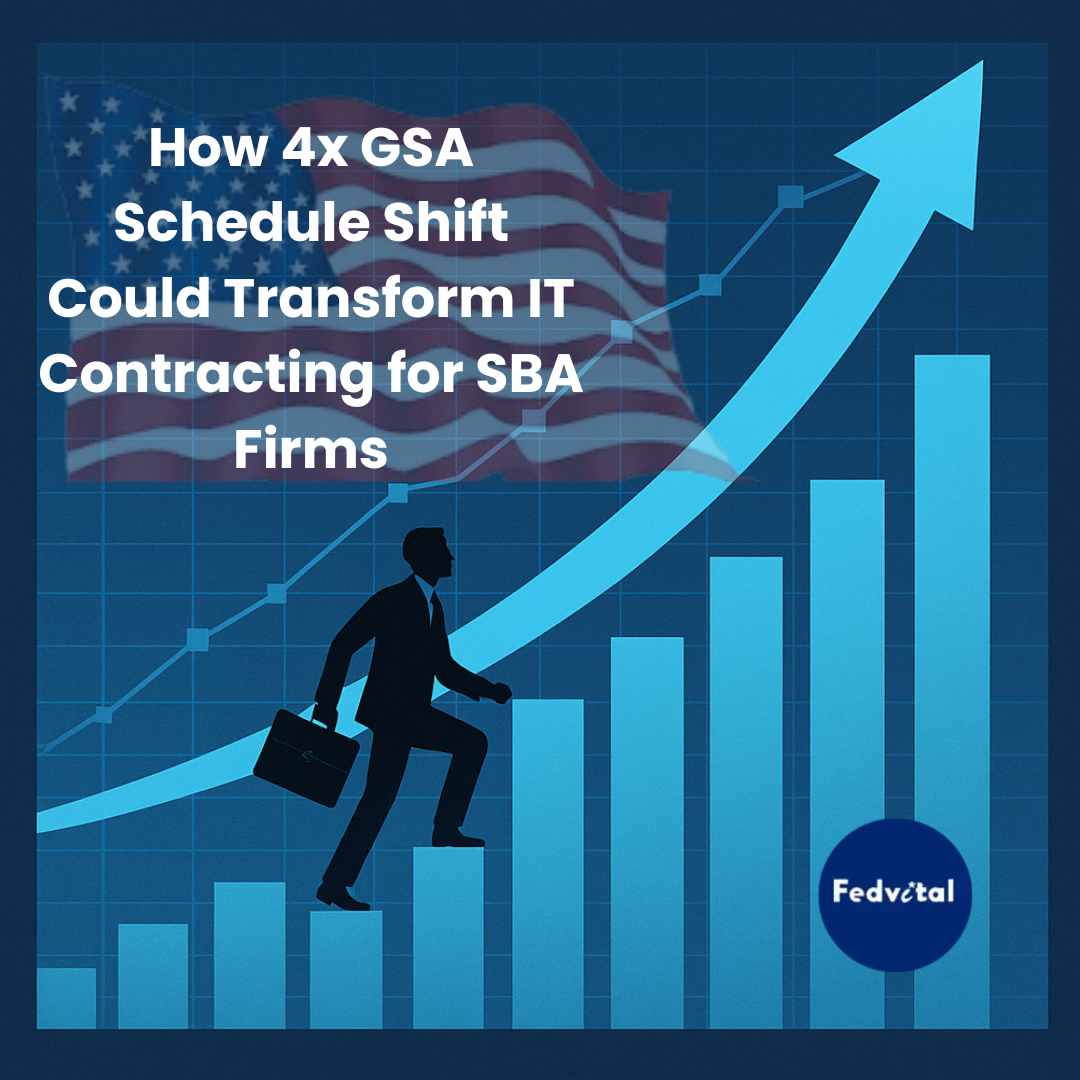How to Bid on Federal Business Opportunities Successfully
Navigating the world of federal business opportunities can feel like a daunting task, especially for newcomers. However, with the right strategies and a resilient mindset, you can position your business for success in this competitive arena. Bidding on federal contracts isn't just about meeting criteria; it’s about understanding the unique landscape of government procurement and how to stand out amidst the competition. In this article, we’ll uncover essential tips and best practices to help you craft compelling bids, respond to opportunities effectively, and enhance your chances of securing lucrative contracts. Whether you’re a seasoned entrepreneur or just starting, mastering the art of bidding on federal business opportunities could be the key to unlocking new revenue streams and expanding your business horizons. Let’s dive in and explore how you can turn these opportunities into tangible success!

Understanding Federal Business Opportunities
Navigating
the federal business landscape entails understanding the myriad of
opportunities available to businesses of all sizes. Federal business
opportunities are essentially contracts or solicitations issued by government
agencies that require products or services from the private sector. These
contracts can range from small purchases to large-scale projects that span
several years. They provide businesses with stable income streams and the
prestige of working with the government.
Federal
contracts are divided into several categories, including fixed-price contracts,
cost-reimbursement contracts, and indefinite-delivery contracts. Each category
has its own set of rules and requirements, making it crucial for businesses to
thoroughly understand the type of contract they are bidding on. Fixed-price
contracts, for instance, provide a set payment amount regardless of the
contractor's costs, while cost-reimbursement contracts cover the contractor's
allowable expenses to a set limit. Understanding these distinctions will help
businesses determine which opportunities align with their capabilities and
financial goals.
Additionally,
federal business opportunities are often listed on specific platforms such as
the System for Award Management (SAM) or the Federal Business Opportunities
(FBO) website, now known as beta.sam.gov. These platforms serve as the
central hub for federal procurement activities, where businesses can search for
open solicitations, register as federal contractors, and submit bids.
Familiarizing oneself with these platforms is a crucial step in the process of
securing federal contracts.
Importance of Federal Contracting for Businesses
Securing
a federal contract can provide numerous benefits to businesses, making it a
highly sought-after objective. One of the primary advantages is the stability
and reliability of working with the federal government. Unlike private sector
clients, the government provides a consistent source of revenue with clearly
defined payment terms and schedules. This can be particularly beneficial for
small businesses looking to establish a steady cash flow.
Moreover,
federal contracts often come with long-term agreements, which can span several
years and provide ongoing work. This not only ensures sustained income but also
allows businesses to plan and allocate resources more effectively. Long-term
contracts can also lead to additional opportunities, as successful completion
of one contract can enhance a business's reputation and increase the likelihood
of securing future contracts.
In
addition, federal contracting can open doors to new markets and customers.
Working with the government can elevate a company's profile and credibility,
making it more attractive to other potential clients. The experience gained
from federal projects can also enhance a business's capabilities, making it
more competitive in both the public and private sectors. Ultimately, the
importance of federal contracting lies in its ability to provide financial
stability, growth opportunities, and an enhanced market presence.
Key Terminology in Federal Bidding
Navigating
the federal bidding process involves becoming familiar with a range of specific
terminologies that are frequently used. Understanding these terms is essential
for accurately interpreting solicitations and crafting competitive bids. Here
are some key terms every bidder should know:
- Request for Proposal (RFP):An RFP is a document that solicits a proposal, often through a bidding process, by an agency interested in procuring a commodity, service, or valuable asset. The RFP outlines the project's requirements and the criteria upon which the submitted proposals will be evaluated.
- Request for Quotation (RFQ): An RFQ is a document used
to invite suppliers to bid on specific products or services. It is
typically used when the requirements are well defined, and the primary
criterion for selection is price.
- Request for Information
(RFI): An
RFI is used to gather information about the capabilities of various
suppliers. It is not a solicitation for bids but rather a means for the
government to understand market capabilities and develop a clearer
understanding of potential solutions.
- Statement of Work (SOW): The SOW is a detailed
description of the work that is to be performed under a contract. It
outlines the tasks, deliverables, and timelines required for the project.
- Contracting Officer (CO): The CO is the government
official responsible for overseeing the procurement process and ensuring
that the contract complies with federal regulations. The CO has the
authority to enter into, administer, and terminate contracts.
- Bid Protest: A bid protest is a
challenge to the terms of a solicitation or the award of a federal
contract. It can be filed by an interested party who believes that the
government has not followed proper procedures.
Familiarizing
yourself with these and other key terms will ensure that you can effectively
interpret solicitation documents and communicate clearly throughout the bidding
process.
Researching Federal Opportunities
The first
step in successfully bidding on federal contracts is conducting thorough
research to identify suitable opportunities. This involves understanding the
needs of various government agencies and aligning them with your business's
capabilities and expertise. Several resources are available to assist with this
research, including government databases and industry-specific publications.
Platforms
like SAM.gov and beta.sam.gov are vital tools for finding
federal contracting opportunities. These databases list current solicitations
and provide detailed information about each opportunity, including the scope of
work, deadlines, and eligibility requirements. Regularly monitoring these
platforms will help you stay informed about new opportunities and upcoming
projects.
In
addition to online databases, networking and building relationships with key
stakeholders can provide valuable insights into federal contracting
opportunities. Attending industry conferences, participating in
government-sponsored workshops, and joining professional organizations can help
you connect with procurement officials and other contractors. These
interactions can provide early intelligence about upcoming solicitations and
offer opportunities to form partnerships or subcontracting arrangements.
Another
important aspect of researching federal opportunities is understanding the
procurement history of the agencies you are targeting. Reviewing past contracts
and awards can provide insights into the types of projects the agency typically
funds, the contractors they prefer, and the pricing strategies that have been
successful. This information can help you tailor your bids to better meet the
agency's expectations and increase your chances of success.
Preparing Your Business for Federal Bids
Before
you can start bidding on federal contracts, it's essential to ensure that your
business is fully prepared to meet the stringent requirements of government
procurement. This preparation involves several key steps, including registering
your business, obtaining necessary certifications, and developing internal
processes to manage federal contracts.
The first
step in preparing your business is to register with the System for Award
Management (SAM). SAM is the official database for government contractors, and
registration is required to be eligible for federal contracts. The registration
process involves providing detailed information about your business, including
its size, capabilities, and past performance. Once registered, your business
will be assigned a unique entity identifier, which is used in all federal
contracting activities.
Obtaining
relevant certifications is another crucial step in preparing your business for
federal bids. Various certifications can enhance your eligibility for certain
contracts, particularly those set aside for small businesses, minority-owned
businesses, women-owned businesses, and veteran-owned businesses. Examples of
these certifications include the Small Business Administration's (SBA) 8(a)
Business Development program, the Women-Owned Small Business (WOSB) program,
and the Service-Disabled Veteran-Owned Small Business (SDVOSB) program. These
certifications can provide a competitive edge and increase your chances of
securing set-aside contracts.
Developing
robust internal processes to manage federal contracts is also essential. This
includes establishing systems for compliance, financial management, and project
tracking. Federal contracts come with strict reporting and accountability
requirements, so it's important to have processes in place to ensure that you
can meet these obligations. Investing in project management software, training
your staff, and creating detailed procedures for contract administration can
help you manage federal contracts effectively and efficiently.
Developing a Winning Proposal
Crafting
a compelling and comprehensive proposal is the key to winning federal contracts. A successful proposal not only meets the requirements outlined in
the solicitation but also demonstrates your business's unique value proposition
and ability to deliver high-quality results. Here are some strategies to
develop a winning proposal:
First,
thoroughly review the solicitation document to understand the government's
needs, requirements, and evaluation criteria. Pay close attention to the
Statement of Work (SOW), which outlines the tasks and deliverables required for
the project. Ensure that your proposal addresses each requirement and clearly
explains how your business will meet or exceed the government's expectations.
Use the evaluation criteria as a guide to structure your proposal and highlight
your strengths.
Second,
focus on differentiating your business from the competition. Highlight your
unique capabilities, past performance, and any certifications or qualifications
that make your business the best fit for the contract. Provide specific
examples of similar projects you have successfully completed, and include
testimonials or references from satisfied clients. Emphasize your commitment to
quality, reliability, and customer satisfaction, and explain how these
qualities will benefit the government agency.
Third,
ensure that your proposal is well-organized, clear, and professional. Use
headings, subheadings, and bullet points to make the document easy to read and
navigate. Include a detailed project plan that outlines your approach to
completing the work, including timelines, milestones, and key personnel.
Provide a realistic and competitive pricing proposal that aligns with the
project's scope and your business's capabilities. Finally, proofread your
proposal carefully to eliminate any errors or inconsistencies.
By
following these strategies, you can develop a compelling proposal that
effectively communicates your business's value and increases your chances of
winning federal contracts.


Comments
Post a Comment